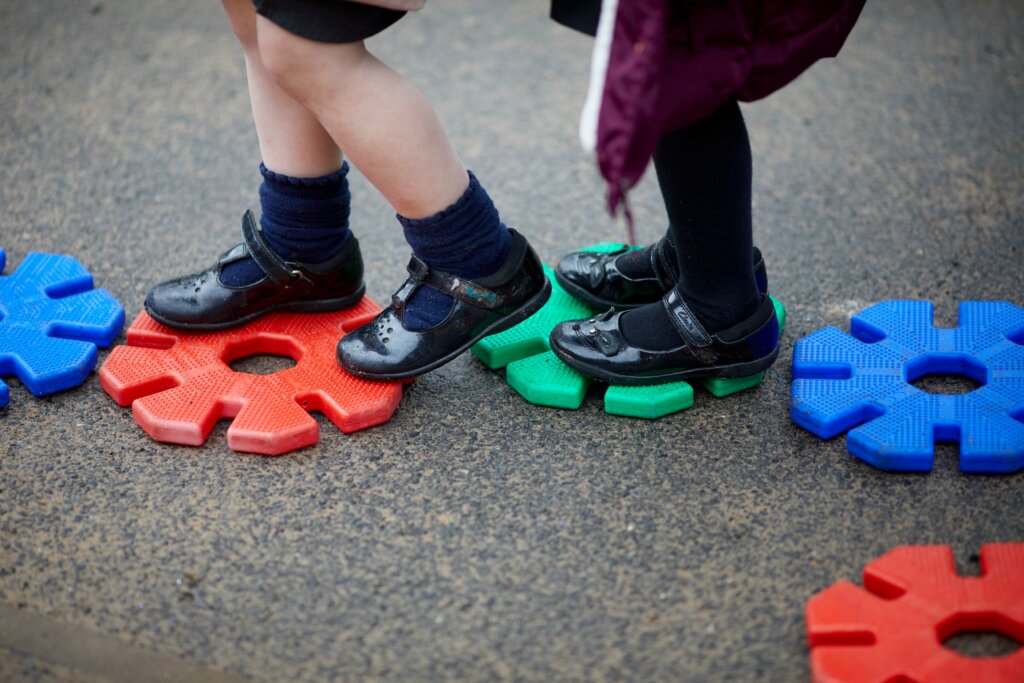The theme for Children’s Mental Health Week 2023 is Let’s Connect, encouraging children to connect with others in healthy, rewarding and meaningful ways. This is a fantastic way to spark conversations with pupils and explore all the ways they can support each other. At the same time, we are reminded of the importance of teacher-pupil relationships, providing the cornerstones for pupil welfare and wellbeing.
How to support children’s mental health in schools
According to self-determination theory, ‘relatedness’ is one of the three essential psychological needs that underlie wellbeing and motivation. This refers to the need to feel connected and cared for. As social beings, we are wired for human connection; positive relationships are necessary for our security, self-esteem, and resilience to stress.
Working in schools and trusts, we understand that a sense of belonging is essential for children to flourish in the classroom and beyond. Research shows that school connectedness is associated with a reduced risk of anxiety, depression and emotional distress. According to experts, these benefits are often long-lasting, with the potential to promote overall health and greater life satisfaction in adulthood.
Fundamentally, teacher-pupil relationships stand at the heart of school life, inspiring happy and healthy connections across the wider community. Whilst laying the foundations for pupil wellbeing, these relationships also set the trajectory for academic success. When pupils feel that they are respected, valued and supported by the adults around them, they become more academically driven and ready to engage in learning. In this way, teacher-pupil relationships have a profound impact on pupils’ future life chances.
How to build positive teacher-pupil relationships
- Get to know pupils
In order for pupils to feel like a valued member of the school community, it is important to get to know them as individuals. Whether it’s through icebreakers at the start of term, or general conversations throughout the day, take the time to learn more about pupils’ backgrounds, families, hobbies and interests. Remember to revisit conversations with pupils, for example, find out how their football match went over the weekend, or ask them if they would recommend the book they’ve been reading. This shows that you have a genuine interest in their lives beyond the classroom.
Don’t be afraid to let pupils get to know you too! By finding common interests, you can build a rapport with pupils, establishing a relationship of mutual trust and respect. This can help to improve pupils’ motivation, whilst also giving them the confidence to confide in you if they need support. As a result, getting to know your pupils will help you to identify their needs and respond effectively, improving their wellbeing as well as the learning experience.
- Create a supportive learning environment
As a teacher, building a safe, secure and inclusive learning environment is key to earning the trust of your pupils. This means establishing high standards of behaviour for all children, and ensuring they are consistently and equitably enforced. In order for pupils to succeed in meeting these standards, they need to know what they are. Agree on a set of classroom rules at the start of the year. Together, you can create a classroom display to serve as a daily reminder of expectations.
Remember that classroom rules should be linked to rewards as well as consequences. Rewards can range from stickers, tokens, and small prizes, to verbal praise and written notes to parents. When pupils feel recognised for positive behaviour, they can feel a greater sense of belonging and engagement. Similarly, it is important to showcase pupils’ work in the classroom and celebrate their success. From star charts and wow walls, to interactive kindness displays, this will help you to personalise the learning environment and ensure that every child feels welcomed and valued for who they are.
- Open a dialogue
There can often be a disconnect between the things teachers say and the things pupils hear. For example, when teachers issue a punishment for challenging behaviour, or criticise a piece of work, pupils might not understand that it comes from a place of genuine care and concern. Feeling rejected, they can internalise feelings of shame and low self-esteem. Or, alternatively, they may feel that the teacher is unreasonable and authoritarian. Either way, poor communication can damage the teacher-pupil relationship.
To avoid any misunderstanding, it is important to create an open dialogue with pupils. Spend time with pupils one-on-one and ask questions to gain a deeper understanding of their individual needs and challenges. Furthermore, explain the reasons behind your own actions and decisions. This will help your pupils to feel heard and understood, whilst also giving you the chance to illustrate the value of your subject and the school’s broader expectations. Most importantly, show your pupils that you believe in them; clarify that you want to help because you know just how much they are capable of.
This Children’s Mental Health Week, we hope you enjoy celebrating all the wonderful connections you have in school, reaching out and reminding pupils that you are always there for support.
If you would like any further guidance with promoting children’s mental health in school, get in touch to find out how our Educational Psychology and Emotional & Trauma Support team can help.
Working alongside schools, families, and a range of professionals, our experts can deliver tailor-made interventions to support the needs of pupils and promote wellbeing across the whole school. Get in touch to find out more.















